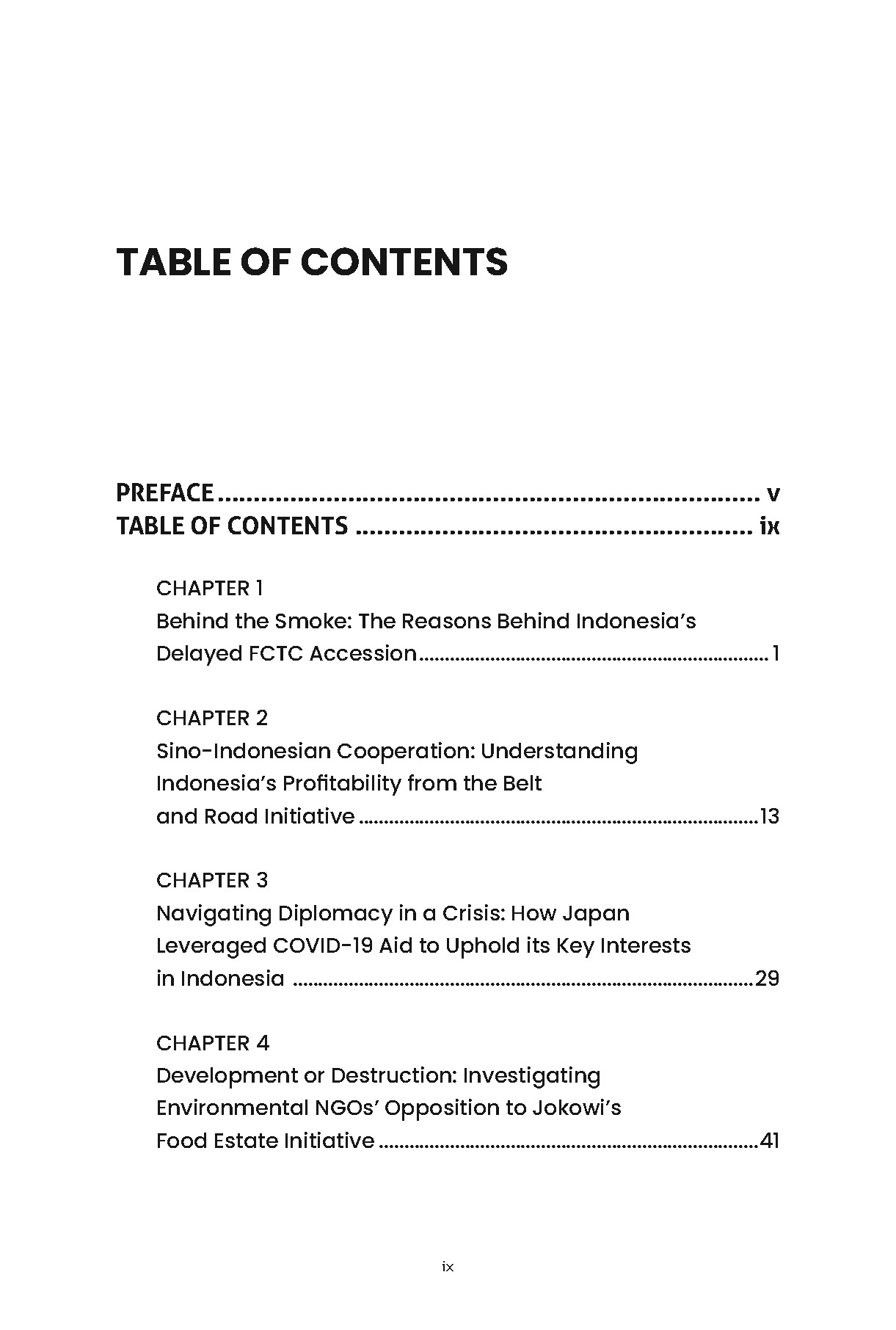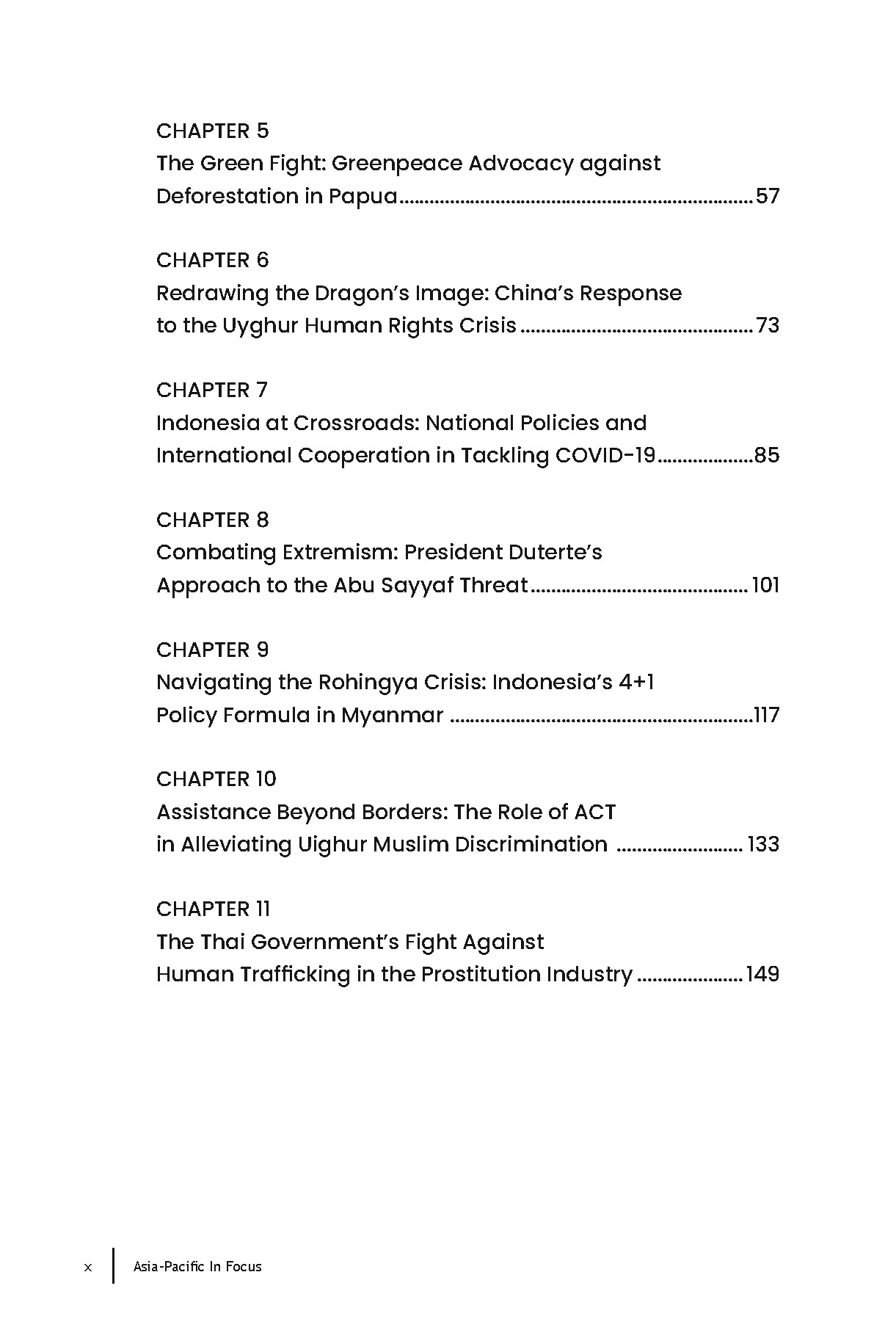ASIA-PACIFIC IN FOCUS: Policy Challenges and Diplomatic Strategies in the 21st Century
This book endeavours to demystify the complexity of this rapidly progressing nation, shedding light on its nuanced internal political landscape and the machinations of its external diplomatic manoeuvres

Behind the Smoke: The Reasons Behind Indonesia’s Delayed FCTC Accession
Under the stewardship of Joko Widodo, beginning in 2014, Indonesia has instituted numerous forward-thinking policies, striving to bolster the nation’s developmental prospects. The government has been at the forefront of many international conventions and is an integral participant in various global organizations. One key alliance is with the World Health Organization (WHO), where Indonesia has been a contributing member since May 23, 1950. Over the years, this partnership has spawned various domestic policies mirroring international resolutions, integrating Indonesia into the global health community.
In 2003, the WHO introduced the Framework Convention on Tobacco Control (FCTC). This pivotal agreement was open for endorsement in Geneva from June 16 to June 22, 2003, and subsequently at the United Nations Headquarters in New York from June 30, 2003, to June 29, 2004. Garnering 168 signatories, including the European Community, this treaty stands as one of the most comprehensive in the history of the United Nations. Committed countries pledged to ratify, accept, or approve the convention, thus politically aligning themselves with its objectives.
The treaty came into legal force on February 27, 2005 (WHO, 2010). The FCTC was proposed by the WHO to safeguard future generations from the detrimental impact of excessive tobacco consumption. This
agreement, backed by several developing countries, including Indonesia, expressed growing concerns about the uncontrolled use of tobacco and the dire health consequences.
This chapter discusses Indonesia’s evolving stance on the FCTC, examining factors influencing its decision not to accede to this international health treaty. A case in point is the previous Indonesian President, Susilo Bambang Yudhoyono, whose refusal to ratify the FCTC was largely politically motivated. Contrastingly, the current administration under Joko Widodo, in office since 2014, has yet to accede to the FCTC, viewing tobacco and its associated industry as a vital economic mainstay. By delving into the compelling reasons behind the Joko Widodo administration’s non-accession to the FCTC, this chapter contributes to the broader discourse. While earlier studies have ventured into this topic, this research seeks to present a more detailed and comprehensive analysis. The exploration goes beyond conventional economic and health narratives, unveiling other under-researched factors that shape the government’s decision against the FCTC. The ubiquitous influence of the tobacco industry
on the livelihoods of the Indonesian populace is integral to this nuanced understanding.
Dapatkan Bukunya Sekarang Juga!
DAFTAR ISI
 Daftar Isi 1
Daftar Isi 1 Daftar Isi 2
Daftar Isi 2Spesifikasi Buku

Cetakan I September 2023 ; 184 hlm, ukuran 15,5 x 23 cm, kertas isi Bookpaper 57,5 gram, hitam putih, kertas cover ivory 230 gram full colour, jilid lem panas (soft cover) dan shrink bungkus plastik.
Harga Buku
Sebelum melakukan pembayaran, cek ketersediaan stock kepada admin. Jika buku out of stock pengiriman membutuhkan waktu – 3 hari setelah pembayaran.
Rp 150.000